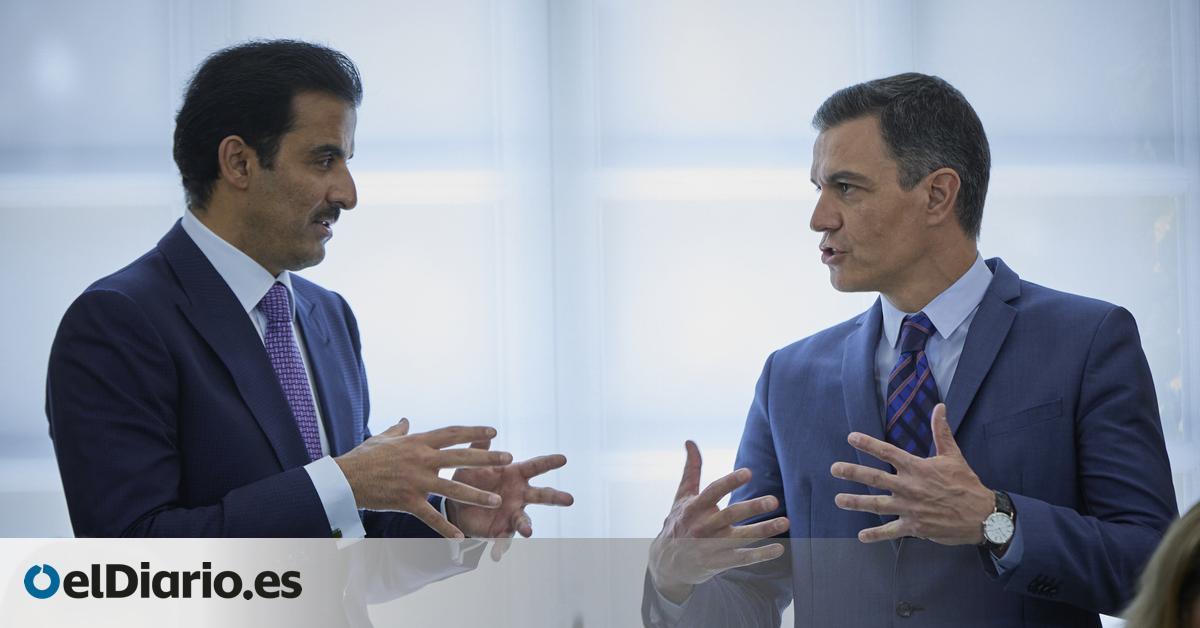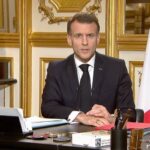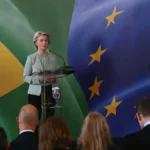
Málaga CF, Cepsa and Telefónica all have in common that they are examples of the petrostates’ eagerness to invest in the Spanish economy. The latest operation, which affects the telephone company, especially confirms the interest of countries such as Saudi Arabia, Qatar or the United Arab Emirates in strategic sectors such as energy, real estate or, now, telecommunications.
The news broke late this Tuesday unexpectedly. The Saudi State, through its operator STC, became the main shareholder of Telefónica, a former Spanish state monopoly. It was done with a package of 9.9% of the shares, valued at about 1,200 million euros. The operation will be carried out in two parts, 4.9% directly and, subsequently, 5% through financial derivatives that will be converted into shares if it has the approval of the Government.
With this, Saudi Arabia fully enters the main Spanish operator – pending the merger of Orange and MásMóvil – and one of the main ones in Germany, the United Kingdom or Brazil. Although he has defended that he does not intend to launch a takeover bid for the group, it can be affected by the anti-takeover obligations that are still in force, and that the leader of the PP, Alberto Núñez Feijóo, proposed to relax a few months ago. This anti-opa shield, reformulated by the Government in July, especially affects foreign investments in Spanish companies with interests in Defense.
The Spanish group chaired by José María Álvarez Pallete has pointed out that it “takes note of the friendly approach” of a Saudi multinational with which they already had collaboration agreements. The operation comes at a time when the company was trying to raise its value in the market, far from that of yesteryear, and awaiting the strategic plan that it has to present to investors in two months. José María Álvarez-Pallete and the CEO of Telefónica, Ángel Vilá, went to Saudi Arabia this Wednesday to meet in person with the heads of the Saudi operator STC and learn first-hand about their intentions.
Telefónica thus becomes the fourth company on the Ibex 35 to have a petro-state as one of its reference shareholders. Thus, it joins a club that Iberdrola was already in, whose main shareholder is Qatar, through QIA, with more than 8% of the shares, although it is not present on its board of directors.
Qatar also owns, through Qatar Airways, 25% of IAG. This company, which is listed on the Ibex, does not have a Spanish headquarters but it is the owner of Iberia, British Airways, Vueling and, soon, Air Europa.
On the other hand, the Mubadala fund, belonging to the United Arab Emirates, owns 3% of Enagás, owner of the gas pipeline and regasification network and operator of the gas system in Spain. This company, whose control is exercised by the State Industrial Participation Company (SEPI), already had the participation of the State of Oman years ago, which reached 5% of the shares.
The Telefónica operation represents one of the largest Saudi investments in Spain. In the history there are also operations such as the purchase more than 15 years ago of the General Electric plastics subsidiary, which had a significant presence in Cartagena, which was estimated at about 8,000 million at the time. However, as of today, Icex estimated the amount invested by Saudi companies in Spain at barely 1,000 million, a number that is now widely exceeded with the injection into the capital of the telecommunications company.
debate on human rights
In the past, commercial relations between Spain and Saudi Arabia have generated numerous debates due to the Saudi regime’s lack of respect for human rights. The good relations between the royal houses of both countries have been part of the controversy, although with the latest problems with the Treasury of the emeritus king, Juan Carlos I decided to temporarily take refuge in Abu Dhabi.
Saudi Arabia has been one of the most prominent clients of the public company Navantia in recent years – it acquired five ships for its navy in 2022 – and in 2018 the sale of 500 bombs to Saudi Arabia by Spain generated strong controversy. The Saudi royal family has already found itself in a conflict with the Spanish Treasury over the management of its mansions in Spain through a company that was on the list of defaulters. At the international level, the murder of journalist Jamal Khashoggi in a Saudi embassy, which the US has attributed to the responsibility of the crown prince of Saudi Arabia, Mohamed bin Salmán, is another of the black spots in a country where human rights are not respected.
But the influence of petrodollars in the Spanish economy has already been permeating companies beyond the Ibex 35 in recent years. Among its milestones is the ownership exercised by Mubadala over another company in the energy sector, Cepsa, where it is its majority shareholder.
Petrodollars have also reached the media system. The Qatari Khalid Thani Abdullah Al Thani, through International Media Group, is a shareholder of Prisa, the publishing company of El País or Cadena SER, with slightly less than 5% of the shares. Although his participation exceeded 8%, controlled from Seychelles. Also from Qatar, the sovereign wealth fund QIA leads the shareholding of the REIT (listed real estate company) Colonial, with 19%.
But petrodollars have also been active in the tourism sector, Spain’s main industry. For example, a Qatari fund acquired the iconic Hotel W in Barcelona in 2013. A year later, the fund of the Qatari army took over the Renaissance, also in the Catalan capital. And in 2017 the largest financial firm in Qatar, the QInvest group, acquired 50% of Marina Port Vell, the luxury yacht workshop and mooring located in the heart of the Barceloneta neighborhood in Barcelona.
For its part, the sovereign wealth fund of Abu Dhabi, ADIA, has recently acquired 24 hotels in Spain through an alliance with Melià with an investment of 600 million. The Saudi company Olayan owns the Ritz in Madrid or the Mandarin in Barcelona.
The most popular sport, soccer, in which we must forget that Telefónica appears as the owner of the broadcasting rights for the Champions League or the Europa League, is not spared from this investment desire of the petrostates in Spain either. Although they are not among the main clubs in the country, funds from the Gulf countries have been positioning themselves in the first categories of this sport. Thus, the sheik who owns Manchester City is also the owner of Girona, while different Qatari funds have control of Málaga, Albacete or Cultural Leonesa. In addition, Almería belongs to a Saudi investor.
The interest of these investors has also been positioned in booming sectors, such as residences for both students and the elderly. In the first case, Mubadala allied with an investment fund to invest in different projects under development in Spain for student accommodation, one of them in Granada. Regarding the second case, the real estate company Healthcare Activos, focused on this business, is 49% owned by the Abu Dhabi sovereign wealth fund. This group has residences for the elderly throughout the country.
In this sense, with the Telefónica operation, the Government came out in a rush to ensure that it “will protect the strategic interests” of Spain, after learning of the operation a few minutes before it was carried out. But the reality is that the same Government, through Cofides, a public-private company attached to the Ministry of Industry, Commerce and Tourism that manages funds, organizes the annual meeting of the international association of sovereign wealth funds (International Forum of Sovereign Wealth Funds). ) in Madrid. The greatest of sovereign wealth funds are expected to come to this meeting, especially those from countries of the Persian Gulf.
Bilateral agreements with Gulf countries
During the last year and a half, there have also been evidences of some agreements reached by the Government with different Gulf countries after bilateral meetings to deepen economic relations. This is the case of the 5,000 million investment that Qatar promised on a state visit to Spain months before the celebration of its soccer World Cup. Agreements were also sealed with KIA, Kuwait’s sovereign wealth fund, which last year established the center of its operations for Europe, Latin America and Africa in Spain.
The petrodollar investment boom is not an exclusively national phenomenon. A report from the SWF consultancy this year showed the growing importance that Gulf sovereign funds are having in investments around the world. They are agents who manage money from the States, in this case especially from oil and gas, and who have become key to understanding many business movements.
In just five years, the countries of the region have gone from having no sovereign wealth fund among the 10 largest to having five. “Middle Eastern sovereign wealth funds are more prepared than ever to shine, they have doubled their investments in Western economies, from 21.8 billion to 51.6 billion in one year,” said that report. “They are making progress in finding cheap assets in Europe and the US,” he insists, pointing to his “privileged position” to hunt for bargains in the market.
Other oil-based investors
Oil, despite calls for decarbonization, continues to have a clear role in supporting million-dollar investments in the Stock Market. In some cases, their nature is very different from that of the Gulf countries because of the difference in the state behind the oil-based sovereign wealth funds. One of them is Norges Bank, the main European sovereign wealth fund.
Half a dozen Ibex 35 companies include this giant investor among their prominent shareholders, with stakes of between 3% and 4%. This is the case of Amadeus, BBVA, Cellnex, Grifols, Repsol or Solaria. However, to this is added a multitude of small investments, which do not exceed 3% and which together add up to more than 9,000 million on the Spanish Stock Market.
Another case is that of Sonatrach, the gas company belonging to the State of Algeria, a traditional key supplier to Spain. That state giant has 4.1% of the shares of the Spanish Naturgy, one of the main energy companies in the country. Sonatrach is also the owner of 51% of Medgaz, the gas pipeline that supplies Algerian gas to Spain and which in the past was owned by Abu Dhabi.
Source: www.eldiario.es

